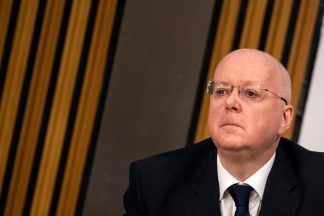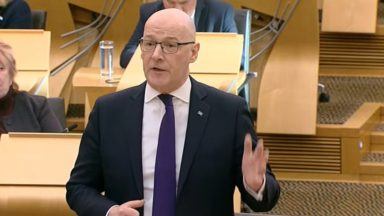The former leader of Scottish Labour has accused opponents of reforms to gender recognition in Scotland of using “populist tactics” to leave the women supporting the legislation “voiceless” in the debate.
Kezia Dugdale said arguments around The Gender Recognition Reform (Scotland) Bill, which is due to go to a final vote at Holyrood this week, has “been driven by and riven with fear”.
The legislation aims to make it easier for people to acquire a gender recognition certificate (GRC) and removes the requirement for a diagnosis of gender dysphoria.
The reforms would see the minimum age for applicants lowered from 18 to 16 and drop the time required of an applicant to live in their acquired gender from two years to three months – six months for those aged 16 and 17 – with a subsequent three-month reflection period.
The Bill has been welcomed by human rights groups and LGBTQ+ organisations as well as Victor Madrigal-Borloz the UN’s independent expert on protection against violence and discrimination based on sexual orientation and gender identity.
However, it has also caused controversy with some claiming it would cause safety risks for women and girls, particularly with regards to same-sex spaces.
The Scottish Government has insisted the legislation will have no impact on the Equality Act – which provides for the exclusion of trans people from single-sex spaces in some circumstances.
Writing in the Times newspaper on Monday, Dugdale, who stepped down from Holyrood in 2019, said: “Sadly, facts have been absent from much of this debate, which instead has fed on division and been driven by and riven with fear.
“This is classic populism, where for one to be strong another must be weak; for one group’s rights to be enhanced another must be diminished; that I cannot be a feminist, a lesbian and still support trans rights.”
Ms Dugdale added: “While I have written previously about what this proposed legislation does and does not do, I have resisted the temptation to enter the debate online or in the media, safe in the knowledge that the Bill had a parliamentary majority.
“It would pass, and so too, in time, would the fractious debate. But with hours to go, I feel that there is a need to call out the populist tactics at play and to defend the process and, indeed, the people this Bill is really about – the trans community – and their human right to live their lives with dignity and respect.
“And I do this as a lesbian and a defender of women’s rights.”
Scottish Labour MSP Monica Lennon has also publicly backed the Bill.
She previously stated: “I support the Gender Recognition Reform Bill because I want to improve the lives of trans men and women.
“We must continue to root out transphobia, misogyny and the oppression of marginalised groups. Inclusive and intersectional approaches are vital.”
However, the party’s former leader and First Minister Jack McConnell has argued sexual predators could come to Scotland and use the changes to abuse women.
The Scottish Conservatives have raised similar concerns and have called for the Bill to be paused while further evidence is considered.
Former community safety minister Ash Regan quit during the previous round of voting on the Bill, citing that she could not be “100% sure that women and girls would not be in danger” if the reforms passed.
Six feminist organisations including Rape Crisis Scotland and Scottish Women’s Aid have signed an open letter in defence of the Bill.
The letter states: “We see the paths to equality and the realisation of human rights for women and trans people as being deeply interconnected and dependant on shared efforts to dismantle systems of discrimination.”
The Bill is set to be debated after a judge at the Court of Session ruled in favour of the Scottish Government last week that the definition of woman should include people with gender recognition certificates.
Some 153 amendments will be debated on Tuesday in what could be a marathon, nine-hour session of the Scottish Parliament, with MSPs potentially sitting up until midnight and beyond before the final vote the following day.
Follow STV News on WhatsApp
Scan the QR code on your mobile device for all the latest news from around the country


 iStock
iStock

























